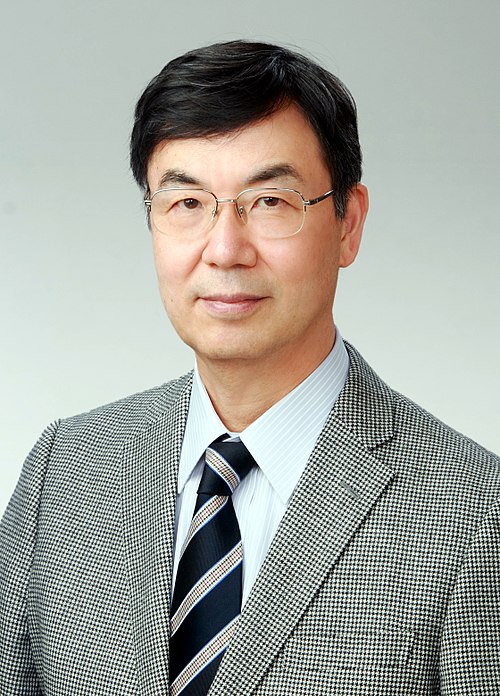InFLAMES Guest Seminar: Shimon Sakaguchi
InFLAMES Guest Seminar
Monday June 16 at 14:00-15:00
Alhopuro Auditorium, Medisiina D (D1038-1)
Shimon Sakaguchi, Osaka University, Japan: Induction of regulatory T cells for immune tolerance, a synthetic immunology approach
Host: Riitta Lahesmaa ( rilahes(at)utu.fi )
Coffee and pulla served at 13.30.
***
Shimon Sakaguchi is a Distinguished Professor at the World Premier International Research Initiative (WPI)-Immunology Frontier Research Center (IFReC) at Osaka University, Japan. He is an immunologist recognized for his work on the control of immune responses. He is known particularly for his discovery of regulatory T cells, an indispensable constituent of the immune system for the maintenance of immune self-tolerance and homeostasis. Sakaguchi obtained an M.D. in 1976 and a Ph.D. in 1982 from Kyoto University, Japan, where he was trained as a pathologist and immunologist. After performing postdoctoral studies at Johns Hopkins University and Stanford University, he served as an Assistant Professor in the Department of Immunology at the Scripps Research Institute. After returning to Japan he was a Professor and the Chairman of the Department of Experimental Pathology, Institute for Frontier Medical Sciences Kyoto University and served as the Director of the Institute for several years. In 2011, his lab moved to Osaka University and he assumed the current position. He has received numerous prestigious international awards. Sakaguchi is the Sigrid Jusélius Foundation Visiting Professor at the University of Turku.
Sakaguchi studies the molecular and cellular mechanisms of immunological tolerance and immune regulation. He has shown that a population of immunosuppressive T-lymphocytes, designated regulatory T cells, are present in the immune system and its deficiency or dysfunction is causative of a variety of immunological disorders including autoimmune diseases. He has investigated the molecular basis of regulatory T cell development and function. In addition, Sakaguchi and his laboratory have demonstrated that numerical expansion of regulatory T cells or strengthening of their suppressive activity is capable of preventing and treating autoimmune diseases and also establishing stable tolerance to transplanted organs, while their reduction in number or suppressive activity is able to provoke effective immunity against cancer. Sakaguchi is currently investigating how regulatory T cells can be targeted in humans to control a variety of physiological and pathological immune responses in clinical settings.
Selected publications:
Osaki M, Sakaguchi S. Soluble CTLA-4 regulates immune homeostasis and promotes resolution of inflammation by suppressing type 1 but allowing type 2 immunity. Immunity. 58(4):889-908.e13, 2025. doi: 10.1016/j.immuni.2025.03.004.
Chen KY, Kibayashi T, Giguelay A, Hata M, Nakajima S, Mikami N, Takeshima Y, Ichiyama K, Omiya R, Ludwig LS, Hattori K, Sakaguchi S. Genome-wide CRISPR screen in human T cells reveals regulators of FOXP3. Nature. Mar 26, 2025. doi: 10.1038/s41586-025-08795-5.
Ichiyama K, Long J, Kobayashi Y, Horita Y, Kinoshita T, Nakamura Y, Kominami C, Georgopoulos K, Sakaguchi S. Transcription factor Ikzf1 associates with Foxp3 to repress gene expression in Treg cells and limit autoimmunity and anti-tumor immunity. Immunity. 57(9):2043-2060.e10, 2024. doi: 10.1016/j.immuni.2024.07.010.
Tay C, Tanaka A, Sakaguchi S. Tumor-infiltrating regulatory T cells as targets of cancer immunotherapy. Cancer Cell. 41(3):450-465, 2023. doi: 10.1016/j.ccell.2023.02.014.
Sakaguchi S. Taking regulatory T cells into medicine. J Exp Med. 218(6):e20210831, 2021. doi: 10.1084/jem.20210831.
Kawakami R, Kitagawa Y, Chen KY, Arai M, Ohara D, Nakamura Y, Yasuda K, Osaki M, Mikami N, Lareau CA, Watanabe H, Kondoh G, Hirota K, Ohkura N, Sakaguchi S. Distinct Foxp3 enhancer elements coordinate development, maintenance, and function of regulatory T cells. Immunity. 54(5):947-961.e8, 2021. doi: 10.1016/j.immuni.2021.04.005.
Sakaguchi S, Mikami N, Wing JB, Tanaka A, Ichiyama K, Ohkura N. Regulatory T Cells and Human Disease. Annu Rev Immunol. 38:541-566, 2020. doi: 10.1146/annurev-immunol-042718-041717.

